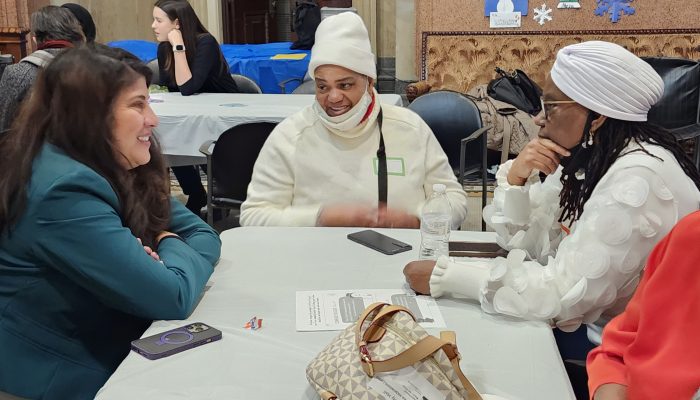Written by Abby Schottenfels, Special Assistant to the Chief Education Officer
Are you planning to go to college soon? Are you considering changing careers and going back to school?
Higher education can be a great opportunity for learners of any age but it is important to understand all of the costs. Tuition is often the greatest expense, but there are financial aid opportunities, scholarships, and other programs to help you achieve your goals without going into debt.
Read on for information on applying for federal student aid and more resources to help you further your education:
Filling out the FAFSA
Filling out the Free Application for Federal Student Aid (FAFSA) form and the PHEAA form is the first step all potential students should take to access federal and state dollars for higher education. The Free Application for Federal Student Aid (FAFSA) form for the 2022-2023 school year is now live and due by June 30. Don’t wait to fill this out! Early completion of the FAFSA means more time to map out your best college options.
What you will need to fill out the FAFSA:
- A Social Security Number or Alien Registration Number*
- A unique ID name and password
- Federal income tax returns, W-2s, and other records of money earned.
- Note: If you (the applicant) are under the age of 18 or a dependent you will need this information for your parents or guardians as well.
Once a student has filled out the FAFSA, it is also beneficial to fill out the PHEAA form which can provide additional funding from the state level.
*If you are an undocumented student, you may still qualify for some aid.
What happens next?
Once both the FAFSA and the PHEAA are filled out, the federal and state government will generate a student aid report and expected family contribution. At the end of the FAFSA, there will be a place where you can fill in the schools you will potentially apply to and have the report sent to them. At this point, you would apply to the college programs you are interested in.
Once you are accepted, the schools will offer you an “award letter” with the various types of aid you can receive. There are a few factors to consider when choosing your college program. Use the resources below to help:
- The factors you should consider when choosing a college program.
- How to choose a program at CCP.
In general, it is recommended that you not take out loans from private financial institutions. These loans accrue interest faster and can be hard to pay back. If this is your only option, you may want to reconsider your educational decision. There are other options!
Local Opportunity: CCP and the Catto Scholarship
One of the best local options available to some eligible Philadelphia residents of all ages is the Octavius Catto Scholarship, funded by the City of Philadelphia. This is an amazing home-grown Philly option to attend the Community College of Philadelphia full-time for free (including books) AND receive additional financial aid for living expenses. In addition, Catto Scholars are assigned a student success coach dedicated to helping them stay on track until they complete their education.
The Catto Scholarship and CCP are a great option for students looking to earn associates degrees, save money, transfer to a four-year degree program, directly enter the workplace, and more. The first step to being a Catto Scholar is applying to CCP and completing the FAFSA. (Please note: Accommodations are made for undocumented students who wish to become Catto Scholars and cannot complete the FAFSA.)
College Access Resources
Securing financial aid can be tricky and confusing and there are resources to help students fill out and understand their student loan options.
- PhillyGoes2College has helpful one-pagers and a college prep directory that can help you find an organization to support your college planning process. They also have a calendar that is updated on a regular basis with FAFSA form completion events, college tours, info sessions, and more!
- Graduate Philadelphia! is a resource for students who have some college credits and are looking to return to school.
- The Federal Government’s Student Aid website explains different lending options and what they mean for families.
- Local organizations have listings of available scholarships including the School District of Philadelphia’s College and Career Readiness Office and the Philadelphia Foundation.
Questions? Let us know!
If Philadelphia students have personal questions about filling out or understanding their FAFSA, or becoming a Catto Scholar, they can always feel free to reach out to the Mayor’s Office of Education by emailing Education@phila.gov. We are here to help and refer you to the appropriate places for support.




